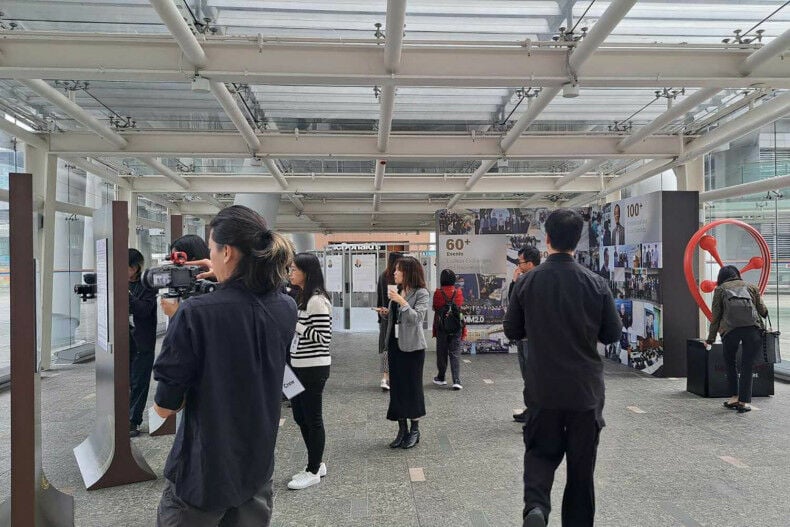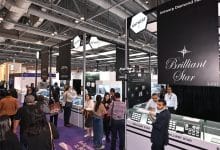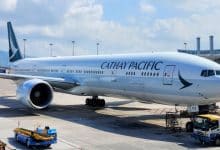Hong Kong Laureate Forum launches Young Scientist initiative for budding academics

The Hong Kong Laureate Forum (HKLF) has launched a Young Scientist initiative, providing a platform for budding academics to network and learn together.
The initiative was unveiled during the HKLF forum at the Hong Kong Science Park from November 13 to 18, featuring a poster presentation as a key highlight. This served as a unique opportunity for young scientists to interact, learn and grow, emphasised Do Pang Wai Yee, the secretary-general of the HKLF Council.
This Young Scientist programme is the brainchild of Carrie Lam, the former Hong Kong chief executive. Lam conceived the idea after attending the Heidelburg Laureate Forum and Lindau Nobel Laureate meetings.
The initiative was designed as a platform for young scientists to interact with esteemed academics who had been recipients of the Shaw Prize, a prestigious scientific award based in Hong Kong. Initially planned for 2021, the programme had to be postponed due to the ongoing Covid pandemic, remarked Ms Do. She added that a physical event was more beneficial than an online one in this context.
The forum saw around 30 posters selected from nearly 200 entries for display. The scientists weren’t restricted to a particular topic, enabling them to submit research across varied disciplines for selection. Once approved, the forum council printed a poster for them to exhibit at the event.
The poster presentation featured research from across scientific fields, although a majority of them were centred around medical science. Dr Jane Wong from Queen Mary’s Hospital in Hong Kong was one of the presenters, showcasing a study on screening tests for hereditary angioedema (HAE), a rare genetic disorder.
HAE treatment
HAE, which results from the absence of a protein called C1 esterase inhibitor (C1-INH) in the blood, causes widespread swelling and can lead to fatal suffocation due to potential swelling in the respiratory area.
In 2017, it was estimated that HAE affected 50,000 to 150,000 people worldwide. In Thailand, multiple hospitals have collaborated with HAE Thailand to work on HAE treatment, including advocating for the inclusion of medication for this disease in the National Health Security system.
Dr Wong’s study focused on developing a quicker, more efficient and cheaper screening method for HAE, as traditional tests were expensive and could delay diagnosis. The study proposed family screening as the primary method, yielding results that reduced additional costs by at least US$153 per family, and allowing 67% of 179 relatives to be screened for HAE.
Various other projects showcased at the forum tackled current issues, ranging from the cryptocurrency trend to the fight against Covid-19. Raphaela Iris Lau from the Chinese University of Hong Kong presented research on using probiotics to treat long Covid symptoms.
Stephen Chen from the American University of Sharjah focused on the use of momentum trading to explain cryptocurrency trading, reported Bangkok Post.
Beyond serving as a knowledge exchange platform, the presentation fostered networking connections and inspired new scientists.
Future Path
The future of the Young Scientist programme depends on the feedback from the meeting.
“We hope scientists and young [scientists] will tell us, and then we will see how it goes from here.”
The HKLF forum, initially planned for 2021, was attended by at least 200 young scientists from over 30 countries, including Thailand, and 20 Shaw Prize laureates.
John Lee, Chief Executive of Hong Kong, during his opening speech, emphasised that the forum aimed to offer an international platform to leverage science and technology to tackle global challenges. He reaffirmed Hong Kong’s commitment to remain a world-class collaboration hub for inspiring minds.
Latest Thailand News
Follow The Thaiger on Google News:


























